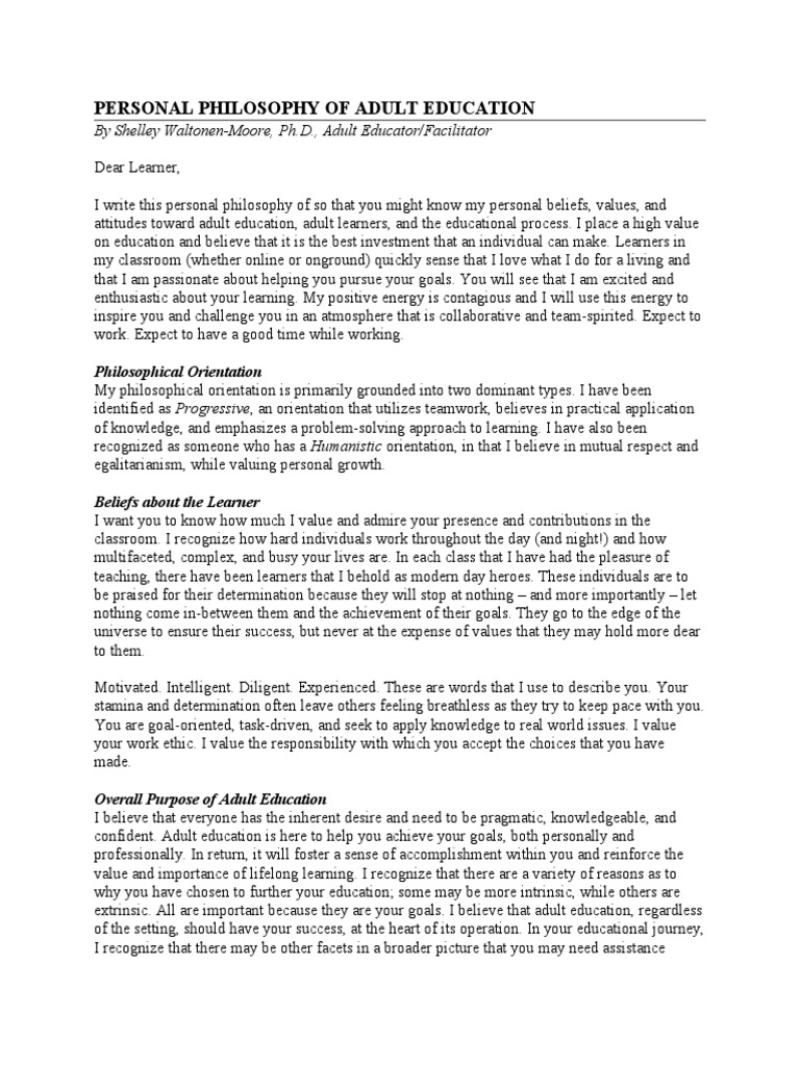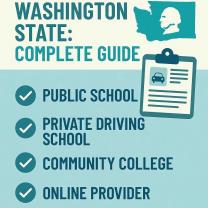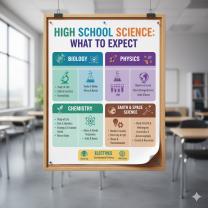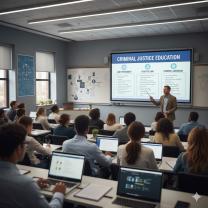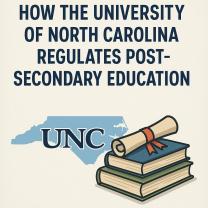What is the philosophy of adult education?
The philosophy of adult education encompasses a set of principles and perspectives that guide the practice and theory of educating adults. It involves recognizing the unique characteristics, needs, and motivations of adult learners and tailoring educational experiences to meet those specific requirements. Several key principles and perspectives form the foundation of the philosophy of adult education:
Self-Direction:
- Adults are seen as self-directed learners who take responsibility for their own learning. They bring life experiences and a readiness to learn based on their needs and interests.
Relevance to Life Experience:
- Adult education should be directly related to the learner's life experiences. Adults often learn best when they can connect new knowledge to their existing knowledge and apply it to real-world situations.
Problem-Centered Approach:
- Learning activities are often framed around solving real-life problems or addressing challenges that adults encounter in their personal or professional lives. This problem-centered approach enhances the practical application of knowledge.
Readiness to Learn:
- Adults are more likely to be receptive to learning when they perceive a need for the information. Adult educators should assess the readiness of learners and align instruction with their current level of readiness.
Orientation to Learning:
- Adults are generally motivated by intrinsic factors such as self-improvement and personal development. The philosophy recognizes the importance of tapping into these internal motivations for effective learning.
Respect for Diverse Learning Styles:
- Adult learners exhibit diverse learning styles and preferences. The philosophy of adult education emphasizes the importance of recognizing and accommodating these differences in instructional design and delivery.
Practical Application of Knowledge:
- Adult education emphasizes the application of knowledge in practical situations. Learning is viewed as a means to solve problems, make informed decisions, and improve one's quality of life.
Mutual Respect and Collaboration:
- Adult educators and learners are viewed as collaborators in the learning process. There is an emphasis on mutual respect, acknowledging the expertise and experiences that both the educator and the learner bring to the educational setting.
Flexibility in Learning Environments:
- Adult learners may have constraints such as work, family, or other responsibilities. Flexible learning environments, including online and distance education, are often considered essential to accommodate diverse schedules and lifestyles.
Continuous Learning and Development:
- The philosophy of adult education recognizes that learning is a lifelong process. It encourages a mindset of continuous learning and development throughout adulthood.
It's important to note that the philosophy of adult education is diverse, and different theorists and practitioners may emphasize different aspects of these principles. Additionally, the field evolves as new research and perspectives emerge. The goal is to create meaningful, relevant, and transformative learning experiences for adults based on an understanding of their unique characteristics and needs.
What is the philosophy of adult education, and how does it differ from other educational philosophies?
The philosophy of adult education is based on the belief that adults are capable of learning new things and that they learn best when they are actively engaged in the learning process. This differs from other educational philosophies, such as traditional pedagogy, which often focuses on the transmission of knowledge from teacher to student.
The philosophy of adult education is grounded in the following principles:
- Adults are self-directed learners. Adults are motivated to learn new things when they see a personal need or benefit in doing so.
- Adults bring a wealth of life experience to the learning process. This experience can be used as a foundation for new learning.
- Adults learn best by doing. Adults learn best when they are actively engaged in the learning process.
- Adults learn in a variety of ways. Adults learn through auditory, visual, and kinesthetic learning styles.
How do educators approach the design and delivery of education for adult learners?
Educators who follow the philosophy of adult education approach the design and delivery of education in a number of ways:
- They create a learner-centered environment. This means that the focus of the learning is on the needs of the learners, rather than on the needs of the educator.
- They use a variety of teaching methods and strategies. This includes using experiential learning activities, such as case studies and simulations.
- They provide opportunities for learners to reflect on their learning. This helps learners to connect new knowledge to their existing knowledge and experience.
- They create a supportive and collaborative learning environment. This helps learners to feel comfortable asking questions and sharing their ideas.
Are there principles or methodologies unique to the philosophy of adult education?
Yes, there are a few principles and methodologies that are unique to the philosophy of adult education. These include:
- Andragogy: Andragogy is a theory of adult learning that was developed by Malcolm Knowles. It is based on the belief that adults learn differently than children. Andragogy emphasizes the importance of self-direction, experience, and active learning.
- Problem-based learning: Problem-based learning is a teaching method that focuses on solving real-world problems. This method is often used in adult education because it is relevant to the learners' lives and it helps them to develop problem-solving skills.
- Action learning: Action learning is a teaching method that focuses on learning by doing. This method is often used in adult education because it allows learners to apply what they are learning to their jobs and other areas of their lives.
The philosophy of adult education is a valuable approach to teaching and learning. It can help adults to learn new things, develop new skills, and achieve their personal and professional goals.
